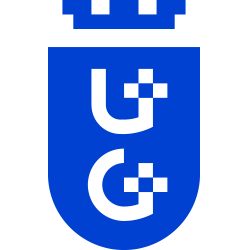
ul. Bażyńskiego 1a 80-952 Gdańsk
Polska
ISNI ID: 0000 0001 2370 4076
GRID ID: grid.8585.0
Justyna Siemionow
Niepełnosprawność, Nr 28 (2017), 2017, s. 162-174
https://doi.org/10.4467/25439561.NP.17.062.8137The special educational needs of socially maladjusted pupils which are connected with process of their social rehabilitation in the institutional environment
The author focuses on the image of socially maladjusted phenomenon: behavioral disorders, leaving educational tasks, aggression and taking drugs or drinking alcohol – they are often included in it. As a result of cognitive perspective (in social science), the following statement is the most important. Personality is a system which consists of a few elements. This system is made of knowledge about self, the social environment and about the others. Personality as a system can control the emotions and also the behavior. The article also presents next thesis: someone behaves in specific way because his cognitive system influences on him. The way how someone understands the others and the surrounding world is also crucial. So, one of the most important task during the social rehabilitation process is to help youngsters to be independent and to obey the rules in the open environment, outside the institution. It is essential to consider the knowledge about their special educational needs during the social rehabilitation. This action increases the chance of success of social rehabilitation and makes this process more effective.
Justyna Siemionow
Niepełnosprawność, Nr 36 (2019), 2019, s. 125-140
https://doi.org/10.4467/25439561.NP.19.050.12293W prezentowanym artykule zwrócono szczególną uwagę na zmianę w funkcjonowaniu wycho-wanków, istotną w badaniach pedagogicznych prowadzonych w instytucji resocjalizacyjnej dla nieletnich na przykładzie młodzieżowych ośrodków wychowawczych. Badania te są szczególnie ważne zarówno dla teoretyków, jak i praktyków resocjalizacji, wymagają odpowiedniego przy-gotowania oraz wiedzy opartej również na eveidence base practise. Połączenie wymienionych dwóch perspektyw jest dziś koniecznością, jeżeli proces ten ma podlegać systematycznej modyfi-kacji w kierunku zwiększania stopnia jego efektywności. Badania prowadzone w środowisku instytucjonalnym wymagają dokładnego planowania, definiowania istotnych dla badania pojęć, a w procesie ich przygotowania uwzględnienia wielu czynników związanych nie tylko z samymi nieletnimi, ale i organizacją pracy instytucji oraz kadrą pedagogiczną. Poza wyborem schematu badań oraz metod zbierania danych, badania prowadzone w środowisku instytucji resocjalizacyj-nej wiążą się z szeregiem innych czynników opisanych w tym artykule. Instytucja resocjalizacyjna to dynamiczna organizacja, reagująca na zmiany tak zewnętrzne, jak wewnętrzne. Prowadzone w tym nurcie badania wpisują się w wyraźnie dziś dostrzegalną potrzebę analizy efektywności procesu resocjalizacji w wymiarze indywidualnym i grupowym. Ważne jest, aby na ich podsta-wie prezentować rzetelne wnioski, które staną się podstawą do wskazywania czynników, u podłoża których leży skuteczne osiąganie celów w procesie resocjalizacji nieletnich sprawców przestępstw oraz tworzenie nowych modeli pracy wychowawczej.
The change as a diagnostic category in pedagogical research —on the example of educational, therapeutic and care-providing activities conducted in the institutional environment of Youth Educational Centres
This article presents how the scientific researches in the social rehabilitation centre are important. It is necessary to plan and organize them because they connect the „theory world" with „practice world". There is a group of factors which can influence on even basic research. It is obvious, we cannot forget about methodology aspects but in this article they are omitted. Deliberations in this article are concentrated at functioning of the rehabilitation institution, its institutional environment and some factors which interact each other. The institutional environment has a great impact on any research which may be planned in it. The goal of this article is to onduct a theoretical and multifaceted analysis of educational, therapeutic and care-providing activities undertaken in the institutionalised environment. The most important category of diagnose in this analysis is the term of change. In this article only the key factors are described but it is good to consider them before planning the scientific researches in this kind of institution such as: cognitive level of general functioning of the pupils’, age and the length of stay of these pupils are extremely important in each scientific activity. It is crucial to make as much effort as you can to show to the public the real conclusions conducted from credible information based n the scientific researches. It may be the foundation for creating new models of educational work.
Keywords: youth educational centers, process of social rehabilitation, effectiveness of social rehabilitation process, change in social rehabilitation